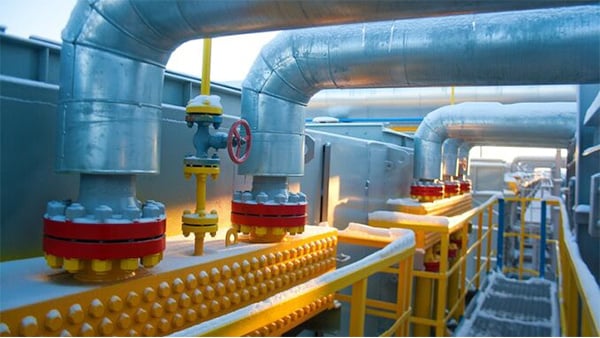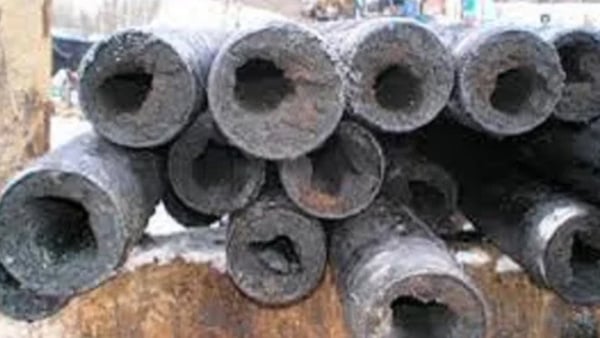In the oil and gas industry, the use of specific chemicals such as pour point depressants and wax inhibitors plays a vital role in optimizing production processes and maintaining environmental sustainability. These chemicals not only ensure the smooth flow of oil and gas but also guarantee the effectiveness of water and wastewater treatment processes. This article will explore the latest innovations in the development of these chemicals and their role in the oil and gas industry, particularly in the context of water and wastewater treatment. The importance of these chemicals is seen in various aspects of the industry, from improving operational efficiency to contributing to environmental conservation efforts. Technological advances and research in this area continue to open up opportunities for the development of more sustainable and effective solutions, highlighting the critical role of innovation in meeting the environmental and operational challenges faced by today's oil and gas industry.

Why Pour Point Depressants and Wax Inhibitors are Important
Pour point depressants and wax inhibitors are two chemicals that play a crucial role in the oil and gas industry. Pour point depressants are used to lower the pour point of oil, facilitate transportation and processing of oil at low temperatures. Their use helps prevent oil freezing in cold temperatures, ensuring consistent flow and preventing potential bottlenecks in distribution. Its presence increases efficiency in hydrocarbon flow management, especially in extreme environmental conditions. Meanwhile, wax inhibitors prevent the formation of wax crystals in oil, which can lead to pipeline blockages. These blockages not only disrupt efficient flow but can also lead to infrastructure damage and costly maintenance requirements. The ability of these materials to keep the oil stable across a wide range of temperatures makes them a critical component in operational risk management. The use of these two chemicals ensures smooth oil and gas production operations and reduces the risk of environmental damage. Furthermore, optimization of these processes contributes to reduced operational costs, increased safety in the oil and gas drilling and transportation process, and extended life of the infrastructure involved.

Recent Innovations in These Chemicals
Recent technological developments have brought significant innovations in the formulation of pour point depressants and wax inhibitors. These innovations include increased efficiency in the prevention of wax crystal formation and reduction of oil pour point, which not only improves effectiveness but also environmental sustainability. Research continues to develop more effective and environmentally friendly chemicals. In the search for more sustainable solutions, scientists and engineers have explored new materials and production methods that reduce environmental impact, while maintaining or even improving operational performance. These innovations have focused not only on improving the quality of chemicals but also on applying advanced technologies in their production processes.
One area of innovation that is attracting interest is the development of new materials and production methods.
One exciting area of innovation is the development of formulas that can adapt to varying operational conditions, increasing the flexibility and effectiveness of using pour point depressants and wax inhibitors in different scenarios. This approach is particularly beneficial in dealing with variations in crude oil composition and diverse operating environment conditions. In addition, there is also a focus on developing safer and less toxic chemicals, which not only minimize risks to human health but also negative impacts on the environment. These initiatives are in line with the global trend towards sustainability and environmental responsibility in the oil and gas industry. The use of nanomaterial technology in wax inhibitor formulations has shown promising results in reducing the frequency and intensity of wax crystal formation. These innovative approaches not only improve operational efficiency but also help the oil and gas industry move towards more sustainable and environmentally friendly operations.
Benefits in Water and Wastewater Treatment
Innovations in pour point depressant and wax inhibitor chemicals provide significant benefits in water and wastewater treatment processes, especially in the oil and gas industry. Water treatment in these industries becomes more efficient as these chemicals help reduce contamination and speed up the water and oil separation process. This not only improves the quality of the treated water but also reduces the environmental impact of the industrial process. Moreover, the use of these chemicals also helps in reducing the volume of effluent generated, extending the life of the treatment equipment, and minimizing the need for maintenance and equipment replacement.
The pour point depress capability of these chemicals helps in reducing the volume of effluent generated.
The ability of pour point depressants and wax inhibitors to optimize water and oil separation also contributes to improved energy efficiency in the treatment process. Reduced workload on separation systems reduces energy consumption, supporting industry efforts to reduce carbon footprint. Innovations in the formulation of these chemicals also lead to improved occupational safety, reducing the risks associated with handling and treating hazardous waste.
In addition, technological developments related to pour point depressants and wax inhibitors are also contributing to improved monitoring and quality control in the processing process. Advanced sensor technology and automated monitoring systems integrated with the use of these chemicals enable more accurate detection and response to changes in process conditions. This not only improves processing effectiveness but also provides valuable data for continuous process analysis and improvement. Thus, pour point depressants and wax inhibitors play an important role in driving innovation and technological advancement in the water and wastewater treatment industry, ensuring more efficient, safe, and sustainable operations.

Case Studies and Field Applications
Various case studies and field applications have demonstrated the successful use of pour point depressants and wax inhibitors in various projects. For example, in a project in the North Sea, the use of wax inhibitors reduced pipeline blockages, improved production efficiency and reduced operating costs. Case studies like this prove the effectiveness of these chemicals under real operational conditions. Moreover, in another project in the Middle East region, the use of pour point depressants effectively lowered the pour point of crude oil, enabling smoother oil transportation in cold climate environments, thereby optimizing logistics flow and reducing the need for external heating.
Another prominent case occurred at an oilfield in Indonesia, where the combined use of these two chemicals helped overcome the challenges faced in the treatment of wastewater generated from the drilling process. The use of pour point depressant and wax inhibitor not only improved the water and oil separation process but also resulted in cleaner wastewater, facilitating further treatment and reducing environmental impact. The success of this application demonstrates the great potential of using these chemicals in improving efficiency and sustainability in oil and gas industry operations.
The case study highlights the importance of using these chemicals in the oil and gas industry.
The case studies highlight how innovations in these chemicals can be applied in a wide range of geographical and operational conditions, demonstrating their flexibility and adaptability in meeting the unique challenges of each location. With successful applications across a wide range of environments and operational conditions, pour point depressants and wax inhibitors are proving to be effective solutions for improving efficiency and sustainability in the oil and gas industry.
Challenges and Solutions
Despite the great benefits, there are challenges in the use of pour point depressants and wax inhibitors, including adaptation to different oil types and environmental conditions. Solutions developed include chemical formulations that can be customized to the specific characteristics of each project, as well as innovations in chemical application methods to improve efficiency. For example, customization of chemical formulations based on the composition and viscosity of the crude oil helps in achieving more effective results, especially under varying operational conditions.
In addition, another challenge is the need to ensure that these chemicals are safe for the environment and human health. To address this, research is ongoing to create more environmentally friendly formulas, by reducing or replacing potentially harmful chemicals with safer alternatives. These efforts also include developing application methods that minimize direct worker contact with the chemicals, as well as ensuring that the waste generated from these processes can be treated safely and efficiently.
On the other hand, there are also challenges in ensuring the availability and accessibility of these chemicals at various operational sites. Solutions to this problem include the development of a more efficient distribution network, as well as cooperation with local suppliers to ensure a stable and timely supply. In addition, training and education for workers in the field on how to use and handle these chemicals safely and effectively is an important aspect in ensuring their successful application.
By continuously innovating in formulations and applications, as well as addressing environmental and logistical challenges, the oil and gas industry can maximize the potential of pour point depressants and wax inhibitors, ensuring operations that are not only efficient but also sustainable and safe.
The Role of Beta Pramesti Asia in This Innovation
Beta Pramesti Asia, with extensive experience dating back to 1985 and the support of a team of expert engineers, plays an active role in the implementation of innovations related to pour point depressants and wax inhibitors. The company's focus lies on providing effective water and sewage treatment services, as well as the use of innovative chemicals to enhance these processes.
